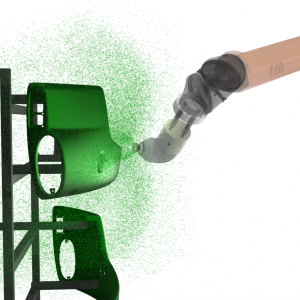Kristian Sandstrom
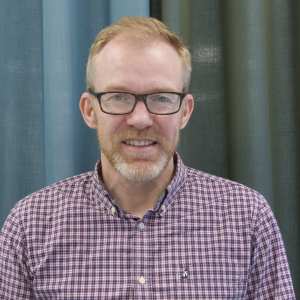
Project time: 2018 – 2020
Budget: 10 010 983 kronor
Funding: SIP Produktion2030
The project will develop a concept for production workers to easily build simple low-cost IoT-aided improvement solutions at the production shop floor.
The goal of the research project is to develop a hardware and software modular system that allows production workers to easily build and implement simple and low-cost IoT-aided improvement solutions at the production shop floor. We call this simple and low-cost kazien enhanced by such a modular system as “Karakuri IoT”. The modular system, if realized, is expected to contribute to kaizen activities at the shop floor in various ways. Examples are; realizing simple and low-cost automation especially related to information handling and decision support, empowering production workers by using their creativity and making their own IoT-aided improvement solutions, enhancing the workers’ learning and acceptance of utilizing IoT in production in a bottom-up manner, and supporting small-start implementation of IoT in production. Those benefits are relevant to large companies but also highly relevant to SMEs. The project is driven by one university and two research institutes, namely Mälardalen University, RISE SICS Västerås, and Swerea IVF. It is conducted with close cooperation with large companies and SMEs, such as Volvo Construction Equipment, Seco Tools, Elekttronikpartner, and Mälarplast.
Developing circular production systems using digital technologies
2021 – 2024

WELDVISI will create a new sensor-based assistance system for manual manufacturing with real-time cognitive feedback and documentation of parameters.
2022 – 2025
The project aims at radically improving the working environment and the employee security within the heavy manufacturing industries by using and adapting the latest technology for low and ultraprecise positioning and decision support systems. The target is to increase security and safety by adapting the decision-support and positioning system for the heavy manufacturing industries.
2017 – 2018
The project aims at facilitating the implementation of Smart Maintenance through extended collaboration within the maintenance community.
2017 – 2019
Two major disruptive trends – electrification and digitalization are changing customer preferences, leading to the probably most substantial transformation in the automotive industry we observed in decades. Finding a balance between customer’s requirements towards “zero-emission vehicle,” “connected car,” choice of materials, clarity of functions, and interface modes under the pressure of production time and cost are not easy. The AttributDo-project aims to help engineers create, define, verify and validate new and existing design features for new product development.
2021 – 2021
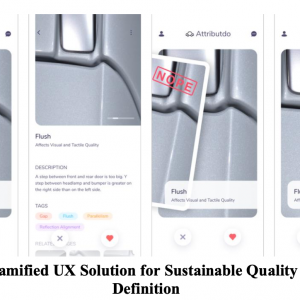
Målet var att förstå de utmaningar som den svenska och japanska industrin står inför studiebesök.
2017 – 2018
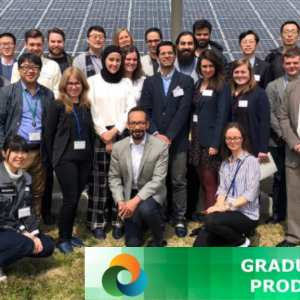
The project aims to reduce the lead time for sheet metal die tryout by optimizing the value stream and develop methods for numerical compensation of die and press deflections.
2017 – 2019
SCARCE II will develop a demonstrator to show how SMEs and associated value flows can increase efficiency, competitiveness, sustainability and internal collaboration through digitalisation. The goal is to show the value of a new digital solution. SCARCE focuses on two subcontractors in the value chain linked to Scania and Volvo. The demonstrator is a cloud-based solution that connects three test beds in the industry; Stena Industry Innovation Lab, Chalmers, RISE IVF lab, Mölndal and KTH's test bed in Södertälje with the help of Siemens, AFRY, Qbim, Virtual Manufacturing and EQPack.
2020 – 2022
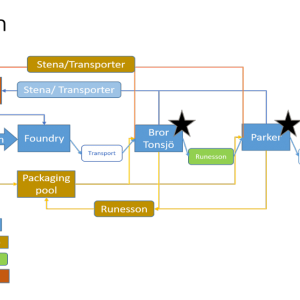
The paintshop is often a bottleneck in production and the processes are fine-tuned based on testing on numerous prototypes. To meet the future demands there is a great need to improve the product preparation process. The aim is to develop methods, techniques and software, and supporting measurement methodology, for simulation of paint curing in IR and convective ovens. The goal is to assist the industry to further develop and optimize their surface treatment to be more energy and cost efficient; to have a shorter lead time in product development; and to give a higher product quality.
2016 – 2019
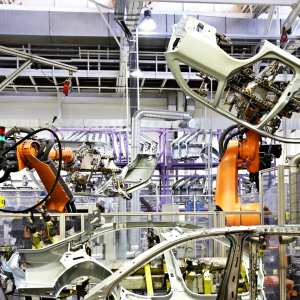
The project aims a digitising the temperatures during the casting of rolls and suggest actions to the casting manager to reduce the variability of the process
2015 – 2016
The project aims to digitalize established tools for production disturbance handling.
2018 – 2020
Method to understand how to automate information handling to get more efficient handling of production deviations.
2018 – 2020
The project aims to use deviation data for improving the product design and production.
2020 – 2023
To demonstrate the new technology with robots that enable Swedish companies to develop innovative new products for automated production o maintenance.
2017 – 2020
DiVISI aims at investigating how sharing of digital information can improve the forest-forest industry value chain.
2020 – 2023
The overall goal of DiSAM is to create a unique test AM Hub in Sweden for metal and polymer based additive manufacturing processes.
2017 – 2021
DiLAM strengthens the competitiveness of the Swedish manufacturing industry by aligning the digital and physical supply chains for additive manufacturing of large parts.
2017 – 2020
DIDAM develops and demonstrates digitalization solutions to industrialize Additive Manufacturing
2020 – 2023
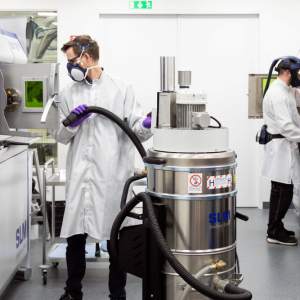
Reduce the environmental impact of foundries by reducing the amount of sand waste using machine learning.
2023 – 2024
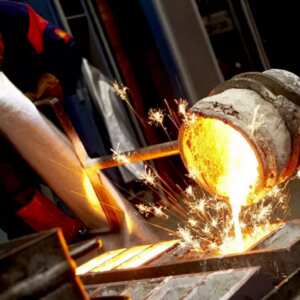
SCARCE will investigate the needs, possibilities and obstacles in value chains up- and down-stream from a focal SME company. SCARCE will explore what data to measure and visualize, and how this data can enable more automated execution, as well as, more dynamic and proactive planning of production capacity and material flows across the companies in the value chain. In addition, we will study organizational capabilities, especially the future human role, for implementing and managing in a digital and data-driven value chain.
2019 – 2019
Tidsättning av manuell montering är centralt för verkstadsindustrins konkurrenskraft.
2021 – 2024

This project aims to contribute to the development of future ERP-systems. The project will explore how to offer work, redefine work roles and challenge companies to make use of advanced systems support and the technology within and around these. Overall, the project aims to contribute to the development of both the next generation of ERP-systems and a complementary change in the way firms see upon work organization, so that technology can support and meet the needs of the humans within organisations rather than enforcing structures upon them.
2019 – 2019
Improve the efficiency of sawmills, including improved monitoring and maintenance of the production line. This by sharing data via digital twin between the actors in the maintenance chain.
2019 – 2019
Novel methods, techniques and software for simulation of electrodeposition and galvanization processes.
2020 – 2023
